Every day, the female body is exposed to more and more judgment from society. Social media feeds are full of unrealistic photos that can really make someone feel uncomfortable in their own skin. For women with postpartum bodies, this topic can be the most sensitive. To support others, this proud mother decided to stop hiding behind filters or pieces of clothing and embrace the flaws that truly make us special.
Most mothers aren’t prepared for the challenges that come after childbirth.
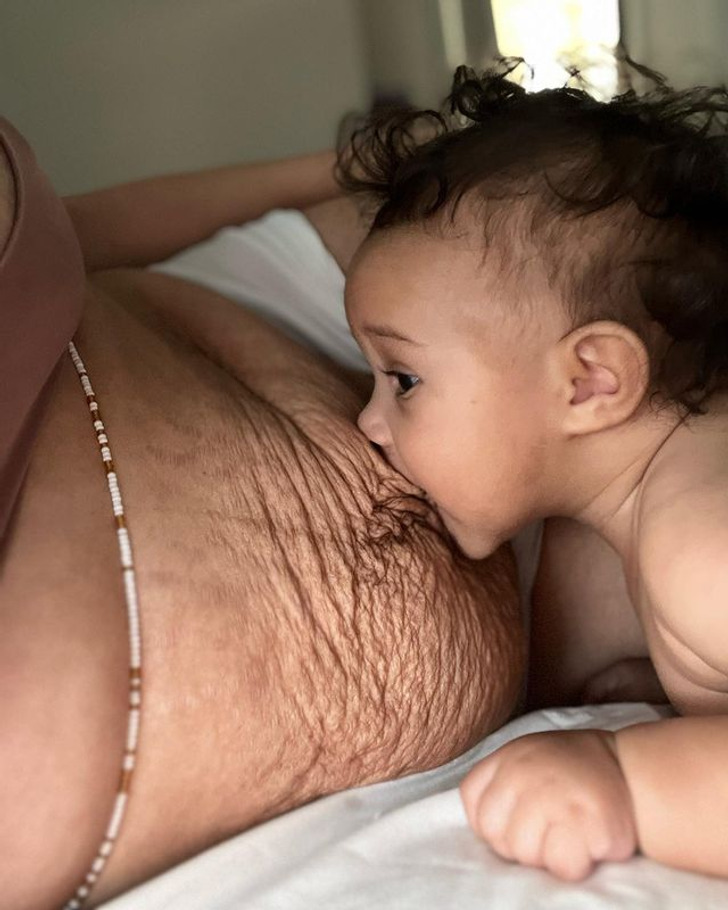
Danisha, a mom of 4, recently started sharing her journey about accepting her body on social media. At first, she was really ashamed and constantly tried to hide her postpartum belly, but with her last baby, she wanted a change.
“I didn’t know that I would have as much loose skin as I do now, and stretch marks. No one ever discussed it, my doctors didn’t discuss it,” the mother explained. “I didn’t know that my body just wouldn’t look the same anymore. But I want to embrace my body, and I’m happy where I’m at.”
Danisha believes a woman’s body creates miracles.
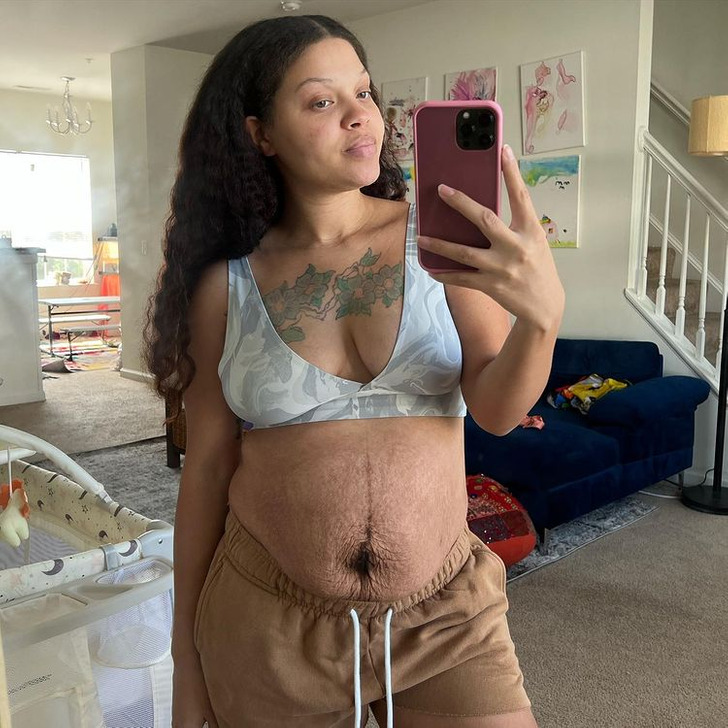
Seeing tons of celebrities and models posing with their pregnant bellies can give us the wrong image. They can make us believe that perfection can exist and that something might be wrong with our own bodies, even lowering our confidence to the point that we forget to love ourselves.
In one of her Instagram posts, she pointed out to other moms that they are loved, saying, “Don’t let society trick you into believing you need to be ’fixed.’ Your body is not wrong, society is!”
Society expects a different image of the female postpartum body.
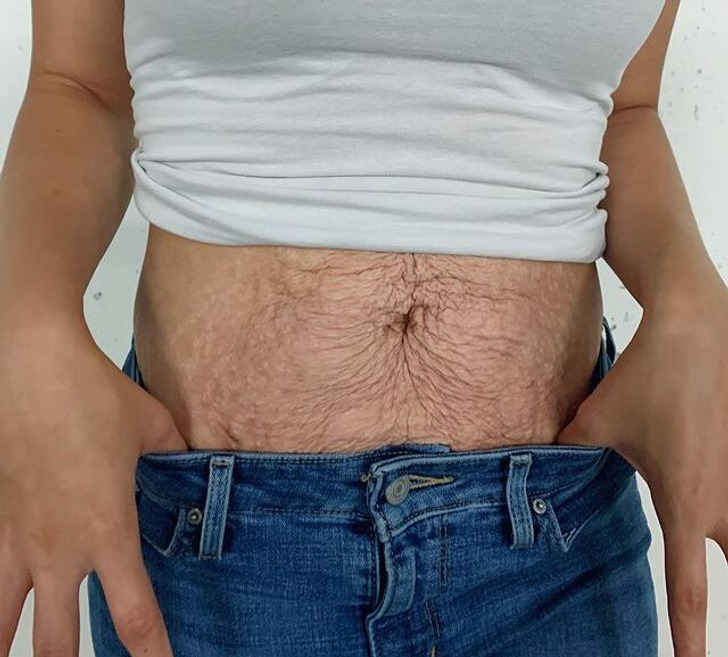
Women are expected to quickly bounce back to their pre-pregnancy bodies. For many mothers, this can feel like they’re strangers in their own their skin. Fighting against your body means losing the battle in the end, but knowing how to accept it and start loving yourself from all angles is a different type of pure love that can only occur if the mother is 100% ready to do it.
The brutal honesty behind Danisha’s posts makes her even prouder of who she is. “Our body is meant to evolve and change, that is what happens with growth, not everyone’s body will change the same and that’s okay,” she admitted. “My wonderful body carried 4 beautiful blessings, my belly is a reminder of that and signifies growth. It has taken me a long time to accept her, love her, and appreciate her.”
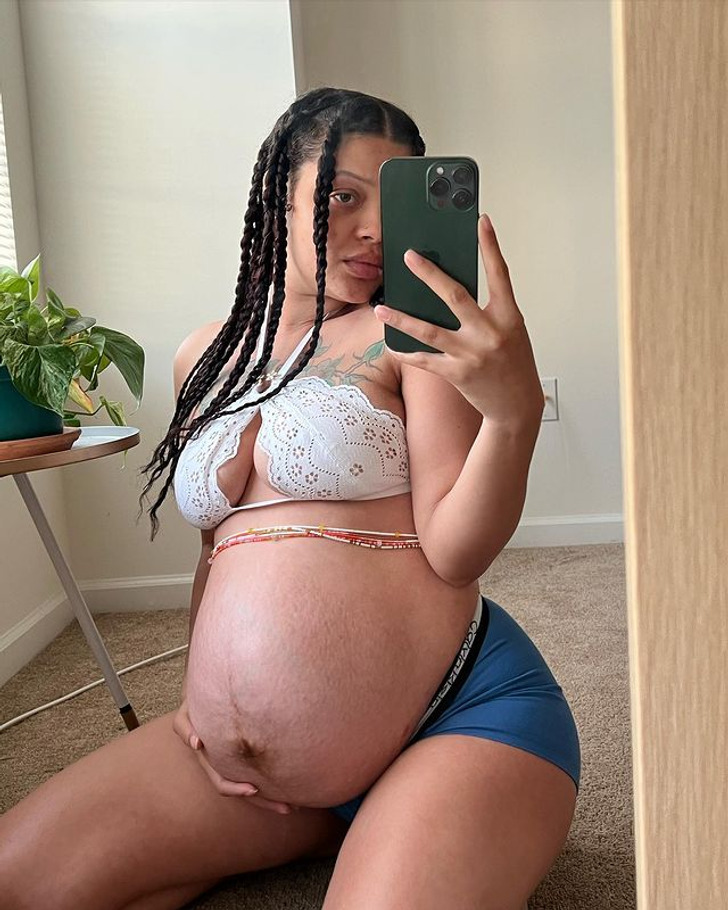
Despite the negative comments that come from everywhere, knowing how to keep your positivity is one of the hardest jobs that people face when they show themselves at their most vulnerable online.
“I have a pouch, I have soft stretchy loose skin. My physical features are not what makes it beautiful, but the fact that my body was able to create life itself for a fourth time. I’m strong as a mother.”
Danisha doesn’t let the negative comments stop her. Showing the raw reality behind a mom’s body is a huge help for other mothers out there as well. “A lot of mamas are unprepared for postpartum.”
It’s a privilege to watch our bodies change as we grow older.
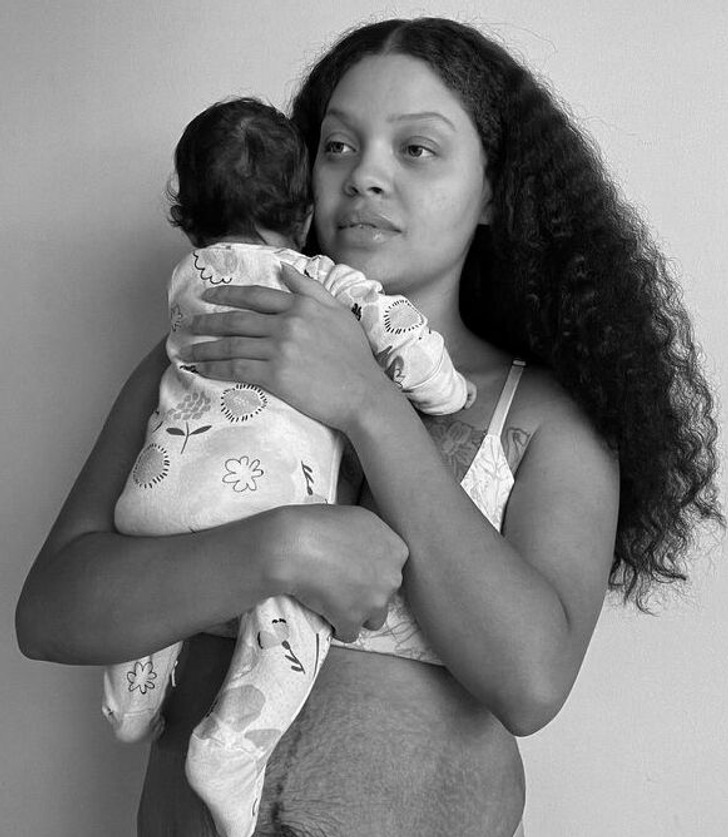
Sometimes, despite all our efforts and hard work to keep our bodies in shape, genetics can get involved and create a different person in the mirror. She explained, “I love it when people tell me that if I had moisturized my skin more then my belly wouldn’t have looked ’this way’ or if I wore a waist trainer I wouldn’t have a pouch and even greater if I dieted or exercised more, then my belly wouldn’t be as ’big.’”
The mother of 4 continued, “The reality is genetics play a big role. My belly is this way because of 4 reasons. I created life 4 times and no oils or creams would have miraculously prevented it. My sagging skin, stretch marks, and other love marks are reminders of bearing my children.”

Every mother is special in her own way and no one deserves to be discriminated against because of their appearance.
“To the mama looking at herself in the mirror: It’s completely normal not to fit into your pre-pregnancy clothes your body outgrew in order to make room for your beautiful blessing. Sizing up is nothing to feel ashamed of,” Danisha declared.
It wasn’t easy, but Danisha started accepting her body.

Understanding how to love stretch marks and accept body changes can be one of the hardest steps that a mom can do. They are a natural response from the body.
“Many would love to have tiger stripes. You can also have them without having children. My tummy was home to 4 of my children, and they love it,” she said.
Beauty comes from both inside and outside.

Regardless of what we look like on the outside, whether we differ in skin color or weight, all people are special in their own way, and our bodies do an amazing job at keeping us alive. In an effort to encourage others around her, this mother points out, “Whether you choose to cover your belly or not, you’re still worthy, still beautiful.”
Here are some similar stories that show us the beauty in every woman’s body.
A Mom of 4 Proudly Documents Her Postpartum Body and Becomes the Dose of Body Positivity We All Need
A Mother Was Told Her Stomach Was “Nasty,” but She Proves How Beautiful Women’s Bodies Really Are
9 Times Ashley Graham Embraced Her Motherhood Journey, From a Postpartum Body to Breastfeeding
8 Celebrity Moms Who Got Honest and Showed Us the Raw Reality of Motherhood
Preview photo credit mama3x__ / Instagram, mama3x__ / Instagram
Paparazzi photos show what Goldie Hawn, 77, really looks like – and everyone’s saying the same thing
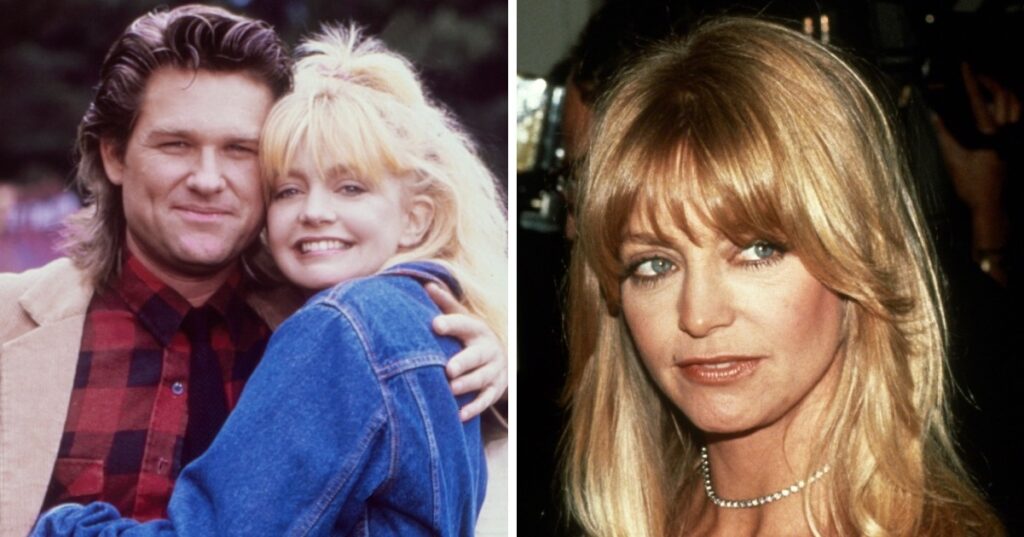
Goldie Hawn is a name almost anyone will recognize. The actress has been a mainstay in the American media for decades because of her immensely successful career.
Behind the scenes, Hawn and her actor boyfriend Kurt Russell have been together for four decades (they celebrated their 40th anniversary on Valentine’s Day this year), and they’ve remained just as committed to one another as they were back in the very beginning.
Given the various allures and distractions life in the spotlight can bring, it’s a wonder that neither ever seems to have put a foot wrong.
What makes Kurt and Goldie’s relationship so very special – and, we might add, so real in the eyes of the public – is their steadfast dedication to each other. They don’t wield their romance as a tool to heighten their celebrity presence, nor have they ever been embroiled in scandals or publicity stunts to hijack the locomotive PR train.
Instead, theirs is a partnership that appears to be a throw-back to a by-gone era, an inspiring and very agreeable union that reminds us all what true love is really about.
As well as sharing adoration for one another, they also defend each other when scrutinized by the media. In fact, Russell defended Hawn when she was recently called cruel names by internet trolls, and when some pretty unflattering paparazzi photos of her emerged online.
One photo in particular shows her in Aspen, Colorado, rocking ugg boots, quilted pants, and a black turtleneck. At 77, she looks fantastic, but most people couldn’t help but comment on how old she now looks – cruelly saying she’s “gone too far” and no longer looks like herself.

Hawn has fought against agism in Hollywood by simply ignoring the comments, embracing getting older and not letting the teasing faze her. Russell is also incredibly supportive of his partner, with Hawn telling People magazine that Russell told her before a dinner date: “You’re unbelievable. I cannot believe how [beautiful] you look.”
After 40 years, the couple is still as in love as they were at the start, and their love story just goes to show the power of love. Despite facing harsh public opinions about their appearances, the couple doesn’t let this affect them.
Hawn especially continues to exude grace and confidence as she embraces the natural process of aging.
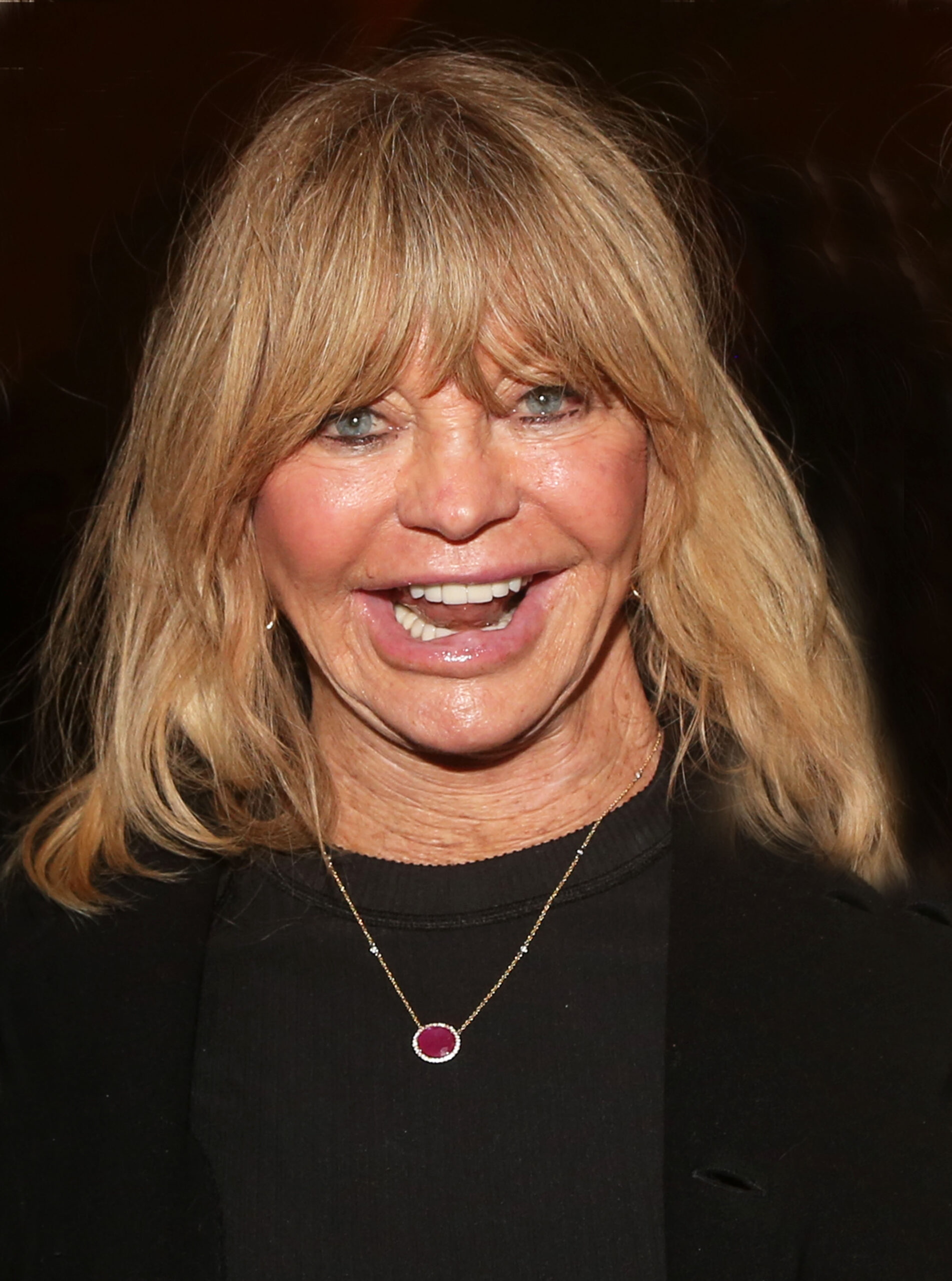



Leave a Reply